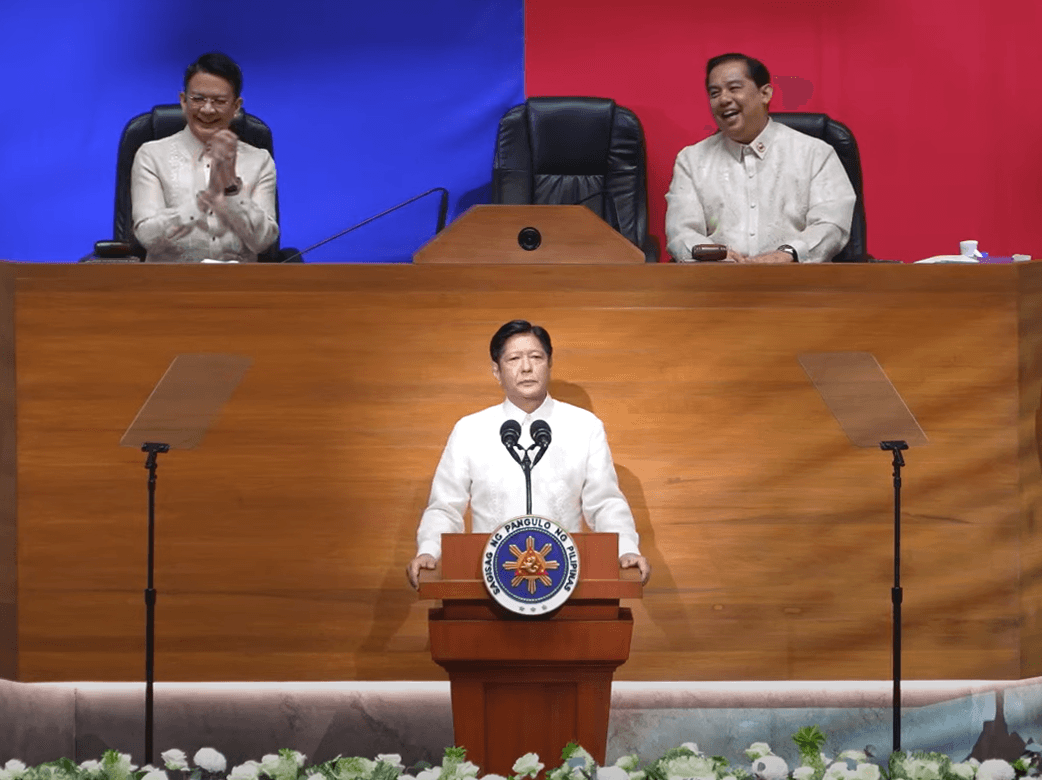A look into the authority of the Chief Executive in the wake of his 2024 SONA.
There is no question that when you bear the mantle of a president, you have power.
Take for example, the State of the Nation Address (SONA.) Seen as the president’s report on the state of the country under their leadership, it is an event deemed significant enough to gather lawmakers in one place, have newsroom reshuffling their staff to give it ample coverage and cause traffic (as their critics and supporters showing up near the venue to be counted and heard.) This alone is an expression of power.
But how much of it does a president have, exactly?
While not a 1:1 observation, a comparative glance between the American and the Filipino Chief Executive can be inferred. We can thus replace the New Deal with the 1935 Constitution, and the Watergate affair, with the legacy of Martial Law.
The potential of Presidential power as an all-encompassing individual is still etched in the popular consciousness. In actuality, the President’s mandate is severely limited according to Curtis Yarvin. While he or she must still enact key decisions, with advice of the Cabinet, his or her office no longer emanates actual oversight.
But Who Is Curtis Yarvin?
To give a short background on who Curtis Yarvin is, he is considered as an emerging figure in the post-liberal conservative space in the United States. Postliberal conservatism, to put it simply, is a rebuke of the mainstream conservatism associated with the Republican Party, and it is characterized by anti-interventionism, advocacy for stricter immigration quotas and a move towards an industrial economy. His controversial views aside, a consideration must be made on the limits of Presidential power, of which he gave a copious digestion from interviews, to written articles elsewhere. And he might be the provocative, yet necessary dispenser for that task.
The Agony of the Presidency: A View from Washington
It is in America where we shall begin. The Presidency and all its mores stem from the era of which Franklin D. Roosevelt and his New Deal manifested. It is an age of mass politics. FDR is hoisted by a combination of reformist elites, newfangled unions and millions of citizens eager to put a new consensus into effect. Today, much of that Presidential power is curtailed, which can be traced to the aftermath of the Watergate affair.
This means that the actual powers of the President have decreased. Increasingly, their jurisdiction is no better than that of a fall guy. This is where the bewilderment of how power is exercised, has its introduction. The contradiction between the image of Presidential opulence, and the on the ground function of what the Presidency, diverges from this point of view.
The Philippine Experience: On The POGO Question
In the Philippine context, POGOs can be the lightning rod in this observation. POGO, an acronym for Philippine Offshore Gaming Operators, has been a more overt feature in the Philippine economy since the Duterte administration. PAGCOR, the Philippines agency for the regulation of these sectors usually related to gambling, is responsible for bringing these enterprises to the country. While PAGCOR often touts the lucrative margins that these POGOs bring, POGOs occupy a measly 3% of the overall GDP, and thus marginal in terms of its ability to bring in revenue. It is a different question altogether, with respect to its influence on real estate and other appendages of the hot money sections of the economic order.
It is indeed true that POGOs did contribute to the 2010s real estate boom, which has been ongoing since the late 2000s. However, in recent years, POGOs are getting scrutinized due to its notorious reputation as a hub of activities deem contrary to the law, and this is not helped by the fact that China itself bans online gambling.
During President Marcos Jr.’s SONA, the concluding paragraphs dealt with the POGO question specifically. He announced to the public, its banning and its eventual dissolution. If he were a President in the context of the 1935 Constitution and the Martial Law era, this would be implemented swiftly, with little consideration to protocol. But since the power of the President has been neutered, his administration faces some bureaucratic resistance to this venture.
The more pertinent resistance comes from none other than the Representatives who argue that the POGOs are necessary for the social welfare programs of the administration. The subtle resistance derives from the sudden conversion of at least 40 POGO networks into IGLs or Internet Gaming Licensee companies. The public is correct to be skeptical of this rebranding and might conclude that the President’s authority is indeed quite limited to rhetoric and some adjustments.
The implications of this ongoing affair will be pivotal enough to make a final judgement. It can already deduce though, that despite the remark that politicians all rally behind the Presidential bandwagon, this is no longer enough to turn the tables. Hence comes the disappointment.
What is to be Done?
There are two methods that one might consider on how to square the circle.
First is to simply restore the President’s former stature, and to become as influential as its New Deal predecessor, with Yarvin suggesting that any party or organization trying to seize the reins must take advantage of its numbers and put immense pressure to the establishment. This will spark a confrontation of which the incumbents will win relatively. While the existing structures do possess robust measures to combat such explosions, they can be neutered by a boisterous grassroots. One can also consider the parliamentary option, of which the President will be a creature of the legislature, and if he or she fails to do her duties, the office is easily replaceable.
These are the two options that Yarvin has presented in America, with surprising resonance to the Filipino condition. The first step however to even seriously consider it, is to view the Constitutional order as not eternal. They are products of historical circumstance, and material premises can wane and wax oversight, that necessitates its own response, which might involve a paradigm shift to be even possible, if actions of this magnitude will be even carried out at all.



